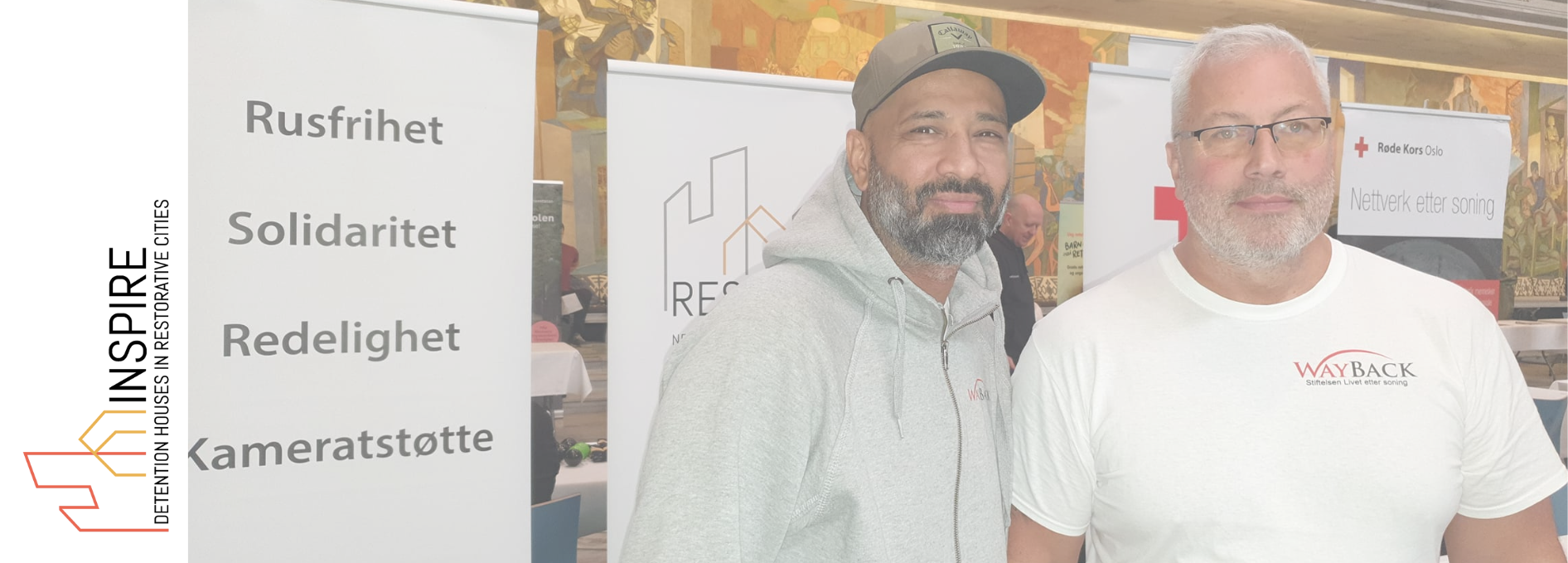
🙏 Empowering voices, igniting change: together we can change the system! 🌍 The European Symposium on Detention Houses brought together diverse perspectives and expertise from
RESCALED challenges the concept of ‘prison’ and proposes the concept of ‘detention houses’ instead. Detention houses are small-scale, differentiated and community-integrated. Thanks to these three principles, detention houses contribute to sustainable, safe and inclusive societies.
RESCALED challenges the concept of ‘prison’ and proposes the concept of ‘detention houses’ instead. Detention houses are small-scale, differentiated and community-integrated. Thanks to these three principles, detention houses contribute to sustainable, safe and inclusive societies.
#EUROPEAN MOVEMENT FOR DETENTION HOUSES
#EUROPEAN MOVEMENT FOR DETENTION HOUSES
In Europe, there are 1.5 million people in prison. That means that 1.5 million people are taken out of society, to spend a longer or shorter period at a large physical and symbolic distance from society. At the same time, they are expected to be prepared to return to society, because almost all of them will. It sounds paradoxical that the best way to prepare someone for society is to continuously keep that person apart from society. Yet, this is what we are still doing more than 200 years after the concept of prison was born. We keep repeating the past, despite years of confirmation that it ‘does not work’.
Why not challenge this concept? Why not propose an alternative, which is a better fit for the 21st century? This is what RESCALED does.
In Europe, there are 1.5 million people in prison. That means that 1.5 million people are taken out of society, to spend a longer or shorter period at a large physical and symbolic distance from society. At the same time, they are expected to be prepared to return to society, because almost all of them will. It sounds paradoxical that the best way to prepare someone for society is to continuously keep that person apart from society. Yet, this is what we are still doing more than 200 years after the concept of prison was born. We keep repeating the past, despite years of confirmation that it ‘does not work’.
Why not challenge this concept? Why not propose an alternative, which is a better fit for the 21st century? This is what RESCALED does.

We bring the prison system to the attention of civil society, inspire for positive solutions and advocate for detention houses and their benefits amongst citizens, policymakers, practitioners, journalists and academics.
By connecting with policymakers, practitioners, journalists and researchers from all over Europe, we build networks and platforms to exchange ideas on small-scale detention and co-create solutions.
We build, collect and share knowledge and expertise on detention houses and their implementation, namely by mapping existing projects and through the RESCALED research network.
We bring the prison system to the attention of civil society, inspire for positive solutions and advocate for detention houses and their benefits amongst citizens, policymakers, practitioners, journalists and academics.
By connecting with policymakers, practitioners, journalists and researchers from all over Europe, we build networks and platforms to exchange ideas on small-scale detention and co-create solutions.
We build, collect and share knowledge and expertise on detention houses and their implementation, namely by mapping existing projects and through the RESCALED research network.
By engaging in dialogue with stakeholders on all policy levels, we support them in anchoring the concept of detention houses in policy and legislation.
By sharing best practices and evidence-based advice, we help stakeholders to implement and monitor detention houses in their national and local context.
By engaging in dialogue with stakeholders on all policy levels, we support them in anchoring the concept of detention houses in policy and legislation.
By sharing best practices and evidence-based advice, we help stakeholders to implement and monitor detention houses in their national and local context.

🙏 Empowering voices, igniting change: together we can change the system! 🌍 The European Symposium on Detention Houses brought together diverse perspectives and expertise from

Our societies are under more and more fiscal strain due to increased wages, better healthcare and an ageing population in the Western world. Crime is

The journey towards community-integration in the implementation of a detention house Introduction Detention houses are characterized by three principles: small-scale, differentiation and community-integration. Unlocking the

🙏 Empowering voices, igniting change: together we can change the system! 🌍 The European Symposium on Detention Houses brought together diverse perspectives and expertise from

Our societies are under more and more fiscal strain due to increased wages, better healthcare and an ageing population in the Western world. Crime is

The journey towards community-integration in the implementation of a detention house Introduction Detention houses are characterized by three principles: small-scale, differentiation and community-integration. Unlocking the
© 2024 All rights reserved by rescaled